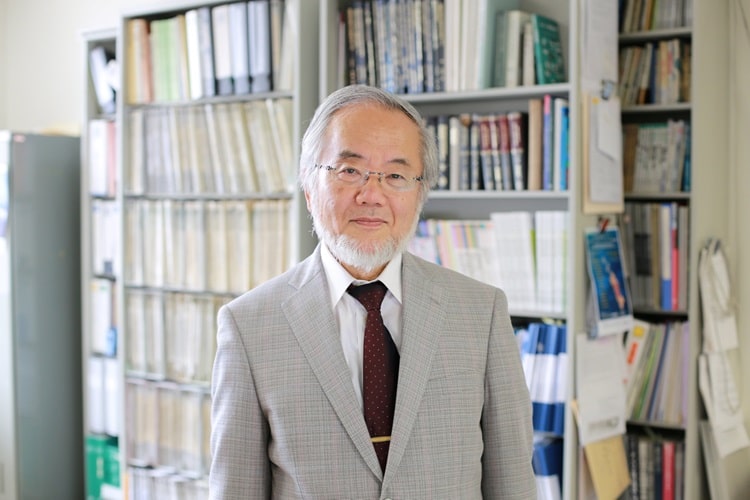Yoshinori Ohsumi is a Japanese cell biologist renowned for his groundbreaking research in the field of autophagy.
Life and Career
Yoshinori Ohsumi was born on February 9, 1945, in Fukuoka, Japan.
Yoshinori Ohsumi earned his bachelor’s degree in 1967 from the University of Tokyo, where he studied at the Faculty of Science. He then pursued his graduate studies at the same university, completing his Ph.D. in 1974.
After completing his doctorate, Ohsumi worked as a researcher at the Rockefeller University in New York City and the National Institute for Basic Biology in Japan. His research focused on the molecular mechanisms of protein transport within cells.
Ohsumi’s groundbreaking work on autophagy began in the 1990s when he used baker’s yeast as a model organism to identify the genes responsible for autophagy. His discoveries elucidated the complex molecular machinery underlying this cellular process, shedding light on its importance in maintaining cellular health. His research also extended to understanding the role of autophagy in various diseases, including cancer and neurodegenerative disorders.
Award and Legacy
Yoshinori Ohsumi has received several prestigious awards and honors throughout his career, recognizing his significant contributions to the field of cell biology, particularly his groundbreaking work on autophagy. The most notable among these awards is the Nobel Prize in Physiology or Medicine, which he was awarded in 2016. The Nobel Committee specifically acknowledged Ohsumi’s discoveries of mechanisms for autophagy, highlighting the profound impact of his research on our understanding of cellular processes.
In addition to the Nobel Prize, Ohsumi has been the recipient of other honors, including the Kyoto Prize in Basic Sciences in 2012 and the Breakthrough Prize in Life Sciences in 2016.
Ohsumi’s research has paved the way for further studies in cell biology, unraveling the intricate processes involved in autophagy. Scientists worldwide have built upon his discoveries to explore the broader implications of autophagy in health and disease.
Understanding the mechanisms of autophagy has opened new possibilities for developing therapeutic interventions. Ohsumi’s work has implications for the treatment of conditions such as cancer, neurodegenerative disorders, and certain infectious diseases, as modulation of autophagy may influence disease progression.
Ohsumi’s dedication to scientific exploration serves as an inspiration for future generations of researchers. His success with baker’s yeast as a model organism showcases the importance of basic research and the potential for unexpected discoveries to have profound implications.

